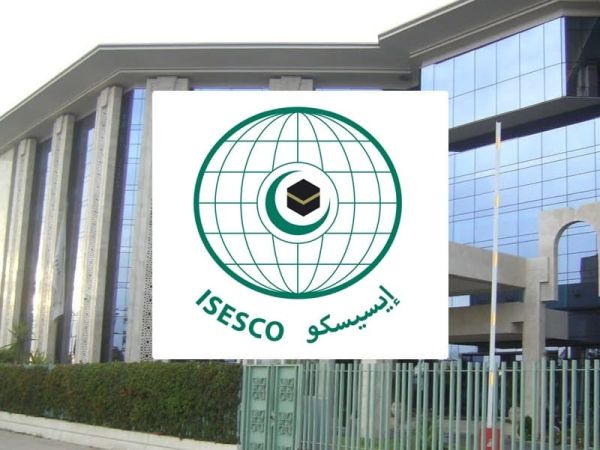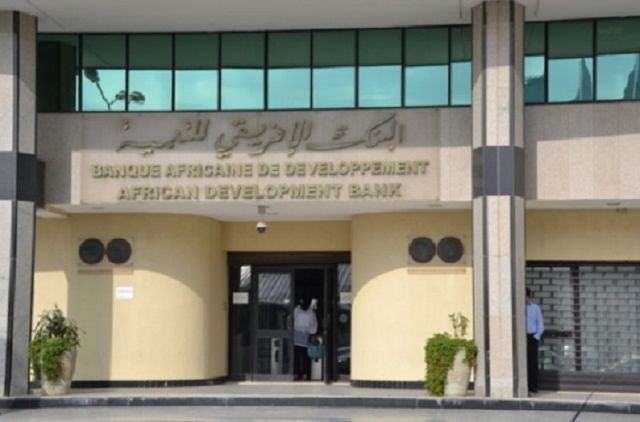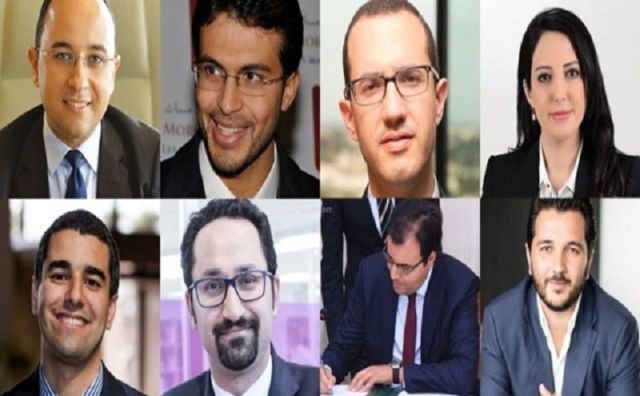
by admin | May 25, 2021 | Entrepreneurship, Muslim World
 Rabat : The Islamic Educational, Scientific and Cultural Organization (ISESCO) will hold an expert meeting at its headquarters in Rabat on March 28-29 to discuss joint cooperation among member countries in marketing and entrepreneurship education.
Rabat : The Islamic Educational, Scientific and Cultural Organization (ISESCO) will hold an expert meeting at its headquarters in Rabat on March 28-29 to discuss joint cooperation among member countries in marketing and entrepreneurship education.
The meeting will bring together experts from Brunei Darussalam, Iran, Jordan, Qatar, Malaysia, Morocco, Nigeria, Saudi Arabia and Turkey, as well as from the Federation of the Universities of the Islamic World (FUIW) and the Organization of Islamic Cooperation (OIC).
Participants will discuss the guidelines and curriculum for the project of establishing joint cooperation among OIC member states in the fields of marketing and entrepreneurship education, which include designing a marketing mechanism and developing a strategic plan for joint cooperation in marketing and entrepreneurship education.
The meeting report will be submitted to the next meeting of the Consultative Council for the Implementation of the Strategy for Science, Technology and Innovation in Islamic Countries, for its presentation and adoption at the 9th session of the Advisory Council for Higher Education, Scientific Research and Innovation in the Islamic World, to be held during 2019.
—AB/UNA-OIC

by admin | May 25, 2021 | Muslim World
 Rabat : Morocco’s gross domestic product (GDP) is expected to reach $121.4 billion in 2017 compared to $116 billion in 2016, according to the latest projection of the African Development Bank (ADB) published recently in Abidjan.
Rabat : Morocco’s gross domestic product (GDP) is expected to reach $121.4 billion in 2017 compared to $116 billion in 2016, according to the latest projection of the African Development Bank (ADB) published recently in Abidjan.
For the first time, Morocco’s GDP is forecasted to exceed MAD 120 billion. According to a statistical bulletin of socioeconomic indicators in Africa, the performance of the Moroccan economy almost doubled in the last 12 years, from $65.62 billion in 2006 to 121.42 billion in 2017.
With this significant growth in the national GDP, Morocco ranks sixth in Africa’s economic powers, following Nigeria with $581.5 billion, South African with $276.1 billion, Egypt with $263.7 billion, Algeria with $170.3 billion, and Sudan with 123.9 billion.
For the ADB, Morocco’s economic growth is expected to see a significant acceleration in 2017, settling at 4.5 percent and 3.9 percent in 2018, mainly due to a strong rebound in agricultural production. According to the bank, the kingdom will exceed the global, African, and North African average growth rates set at 3.5, 3, and 3.1 percent respectively in 2017.
Globally, the bank is expecting a general improvement of the African economic performance in the medium term, boosted by the efforts deployed by the countries in the structural transformation of their economies, which “must continue with urgency and intensity” in the face of volatile commodity prices.
According to the ADB, the dynamics of domestic demand and public investment in infrastructure have also helped support growth in many countries.
“Beyond the accumulation of physical capital, the productivity of these investments, which is important for sustainable growth, must remain a political priority,” ADB experts recommend. According to the bank, budgetary and current account deficits are expected to narrow due to strong export performance and increased government revenues.
At the regional level, East Africa remains the fastest growing region, with an estimated 5.4 percent in 2017 and 5.8 percent in 2018.
—SM/OIC-UNA

by admin | May 25, 2021 | Employment, Muslim World, Overseas

Minister of Tourism, Air Transport, Crafts and Social Economy, Mohammed.
Rabat : With a turnover of MAD 115 billion in 2016, tourism contributed 7 percent of the national GDP and helped create nearly 2.5 million direct and indirect jobs in Morocco, said Minister of Tourism, Air Transport, Crafts and Social Economy Mohammed Sajid.
Speaking in the governing council on Thursday in Rabat, Sajid noted that the sector recorded MAD 64.2 million in foreign exchange earnings, with the number of tourists increasing from 9.3 million to 10.3 million between 2010 and 2016.
The minister also noted that the occupancy rate of hotels has scarcely exceeded 40 percent, which is one of the major challenges facing the sector.
Sajid also stressed the importance of tourism as a horizontal sector requiring the convergence of public policies and the involvement of all sectors to make it a priority, Morocco World News reported.
He recalled the profound changes that are taking place in the sector through technological and numerical developments, as well as geostrategic and political changes in the surrounding region.
In addition, he highlighted the role of tourism in economic development, as the second largest contributor to national GDP. For 2017, Ouarzazate recorded the best national performance for overnights, with a 41 percent increase in the number of tourists compared with the same period in 2016, according to the provincial tourism office.
The month of July saw major growth, with a 77 percent increase in arrivals and a 75 percent overnight stays compared to 2016.
The total number of tourists who visited the region rose from 109,474 for the first seven months of 2016 to 154,677 for the same period of 2017, up by 41 percent.
—SM/IINA

by admin | May 25, 2021 | Entrepreneurship, Muslim World, Success Stories
 Rabat : The Institut Choiseul for International Politics and Geo-economics has named eight Moroccans in its 2017 ranking of African economic “leaders of tomorrow.”
Rabat : The Institut Choiseul for International Politics and Geo-economics has named eight Moroccans in its 2017 ranking of African economic “leaders of tomorrow.”
This list, published yearly by the Paris-based institute, identifies and ranks successful entrepreneurs and business leaders aged 40 and under, who it says to play a significant role in pursuing Africa’s international ambitions, Morocco World News reported.
With the help of many observers across the continent, the liberal think-tank ranks the selected profiles based on their “image and reputation, path and skills, power and function, influence and networks, potential and leadership.”
The high presence of Moroccan managers and entrepreneurs in the institute’s latest ranking makes the kingdom the second-most represented country, behind Nigeria, and ahead of Kenya, South Africa, and Cameroon.
Badr Alioua, Saad Sefrioui, and Marouane Ameziane were also listed in last year’s ranking. “[The 100 leaders listed] are the ones who make things happen and whose enthusiasm and dynamism pull their entire continent on the way to success,” said Pascal Lorot, the president of Choiseul Institut, in a press release.
—SM/IINA

by admin | May 25, 2021 | Investing, Muslim World
 Rabat : While Morocco ranked the second in Foreign Direct Investments after South Africa in Sub-Saharan Africa, to date, the kingdom appears to be taking the forefront position in African FDI, according to a report published today by Montaigne Institute, an independent French think tank.
Rabat : While Morocco ranked the second in Foreign Direct Investments after South Africa in Sub-Saharan Africa, to date, the kingdom appears to be taking the forefront position in African FDI, according to a report published today by Montaigne Institute, an independent French think tank.
“Morocco clearly shows its ambitions in becoming a Pan-African, economic and political leader,” said the report, pointing that King Mohammed VI is spearheading the kingdom’s African policy.
The think tank sees that with Morocco’s return to the African Union, kingdom “has its own agenda in conquering markets in Sub-Saharan Africa, which has led to a competition with French companies, particularly in construction,” said the report.
In February 2016, the Moroccan Office chérifien de phosphates (OCP) inaugurated an industrial plant in Ethiopia dedicated to exporting fertilizers to Sub-Saharan markets, the report reminded, before reintegrating the African Union (AU) during the organization’s summit Addis Ababa.
The document also indicates that the kingdom’s potential joining of the Economic Community of West African States (ECOWAS) will provide Morocco with advantages to export its products to the region and accelerate its rise as a continental power.
Recognizing Morocco’s position as a key investor in Africa, French companies have chosen to make Morocco their gateway to sub-Saharan countries, while others have chosen to ally themselves with Moroccan companies to conquer continental markets.
In 2016, Morocco’s trade with Sub-Saharan Africa has recorded an average annual growth of 9.1 percent over the period of 2008-2016 and has generated a surplus trade balance of MAD 11.9 billion, according to the Foreign Exchange Office, Morocco World News reported.
Trade between the two sides has grown at an average annual rate of 9.1 percent since 2008, reaching nearly MAD 20 billion in 2016. The share of these exchanges is three percent of the total in 2016, against 2 percent 2008.
—SM/IINA

 Rabat : The Islamic Educational, Scientific and Cultural Organization (ISESCO) will hold an expert meeting at its headquarters in Rabat on March 28-29 to discuss joint cooperation among member countries in marketing and entrepreneurship education.
Rabat : The Islamic Educational, Scientific and Cultural Organization (ISESCO) will hold an expert meeting at its headquarters in Rabat on March 28-29 to discuss joint cooperation among member countries in marketing and entrepreneurship education.



